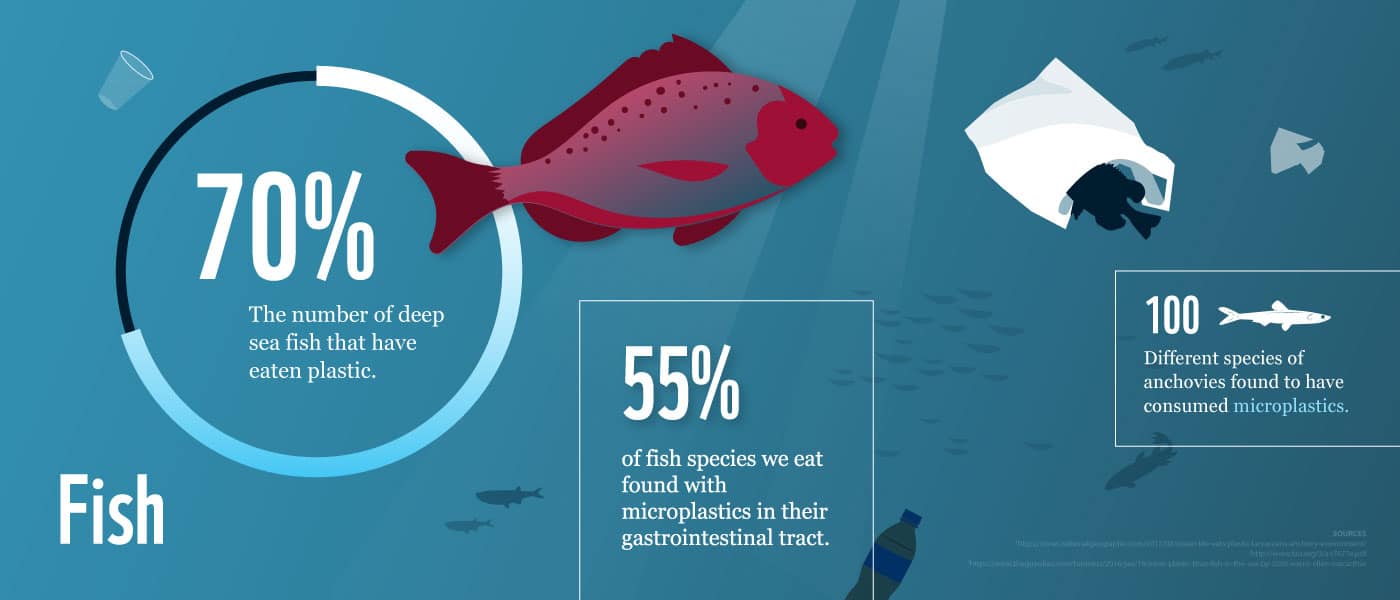[ad_1]
Despite their immense importance for our wellbeing, humans have recklessly polluted the world’s ocean by dumping huge quantities of plastics and toxic substances from industrial activities. Pollution by dumping does not only refer to the deliberate discarding of wastes and toxins by ships and vessels in the ocean but it is also a result of inappropriate waste management waste. We discuss the importance of preserving the ocean through education and training as well as through mandatory marine conservation legislation.
—
The Importance of Oceans
Life originated in the ocean. Scientific evidence shows that the first living cells could have originated at the bottom of the ocean some 4.5 billion years ago. Just like the ocean – an immense body of water which accounts for 71% of the Earth’s surface, humans are also made up of about 60% of water, with most of their vital organs such as the brain, lungs, and heart containing more than 70% of water.
Oceans are the support system of life on Earth. They not only enable humans to breathe clean air by producing oxygen and absorbing carbon dioxide but they also help regulate the climate by absorbing the Sun’s heat. Furthermore, they are an immense resource of essential nutrients such as proteins and vitamins from seafood, algae, and plants that sustain the life of humans: today, more than three billion people rely on the ocean for their livelihoods, with the vast majority living in developing countries.
Ocean Pollution
Oceans are subjected daily to trauma in the form of pollution by dumping.
To date, the most toxic waste dumped into the ocean includes industrial waste, radioactive waste, sewage sludge, and dredged material. Another major issue is the so-called runoff pollution, which occurs when pesticides and fertilisers from farming as well as industrial, nuclear, and other chemicals are dumped into waterways and eventually make their way to the ocean.
Plastic pollution by dumping occurs when anything made of synthetic plastic – such as drinking straws, bags, bottles, and even disposable tampons and diapers – are inappropriately disposed of. Oceans are by far the world’s largest dumping ground for plastic, with 80% of all pollution in the ocean coming from plastic and studies that estimating that by 2050, our seas could contain more plastic than fish.

Figure 1: Microplastics in the Ocean
Plastic waste eventually breaks down in tiny particules known as microplastics. When ingested, these can be fatal for marine creatures. What’s more, through the modern food chain, these toxic substances are also easily transmitted from marine wildlife to humans. Recent studies have found microplastics in human blood, human lungs, and human placenta for the first time; a warning sign that particles from rampant plastic pollution could also be making their way into organs in the body. A 2019 study estimated that an average American citizen ingests between 39,000 and 52,000 plastic particles every year depending on age and sex. These estimates increase to 74,000 and 121,000 when inhalation is considered.
You Might Also Like: Are Microplastics Harmful and How Can We Avoid Them?
Ocean Preservation: How Can We Stop Plastic Pollution in the Ocean?
We are at a crossroads: last year, sea level rise, ocean heating and acidification, as well as greenhouse gas concentrations, all reached record levels according to the World Meteorological Organization’s 2021 State of the Global Climate report. Given the dramatic situation, it is our duty and obligation to respect, protect, and preserve our oceans.
Marine preservation is all about taking care of the largest, blue and watery ecosystem on the face of the Earth through a combination of awareness through education about the value of our oceans, and legislation to stop pollution by dumping and other harmful practices and restore their health.
Education and Training
The first step towards ocean preservation is through education and training. Raising awareness about how the marine environment (oceans, seas, seabed, subsoils, marine life including sea and coastal habitats) is affected by pollution, overfishing, and global warming is crucial.
Humans need to understand the impact of everyday activities before they can actively contribute towards reducing it. Indeed, the best approach to combating pollution by dumping is certainly to prevent it from being created in the first place rather than to pay for its control, treatment, and disposal.
To stop plastic pollution, it is necessary to stay away from and discourage the usage of plastic products from avoiding takeout from restaurants that use plastic containers to trying to shop plastic-free in grocery stores and opt instead for sustainable packaging and recyclable materials.
You Might Also Like: We Need Sustainable Packaging Now. Here’s Why.
To stop toxins coming from industrial, radioactive, sewage, and dredge waste to pollute our oceans, corporations must play their part, too. It is extremely important to pressured them to use energy-efficient processes, eco-friendly fuel sources and non-toxic chemicals as well as to reduce chemical inputs in water usage and cultivate crop strains with natural resistance to pests.
Marine Conservation In International Law
Education and training can help reduce pollution by dumping and other practices that are harming our oceans, but it is international laws that can really help combat it. To this end, the United Nations Law of the Sea Convention (UNCLOS) has established laws to respect, protect, preserve, and prevent the dumping of plastics in the marine environment. Also referred to as the Ocean Law or Law of the Sea, the preamble of UNCLOS is to be ocean conscious, and that the problems faced by the ocean “are closely interrelated and needed to be considered as a whole”.
Under Part XII, Section 1, Protection and Preservation of the Marine Environment, articles 192 to 222 of UNCLOS are devoted to pollution control and preservation in the marine environment. Article 194, for instance, establishes measures to prevent, reduce, and control pollution of the marine environment. Specifically, Article 194 (3) (a) refers to the release of toxic, harmful, or noxious substances by dumping which must be prevented, reduced, and controlled and Article 210 establishes laws and regulations to effectively prevent their dispersal in the marine environment.
International laws such as UNCLOS operate under the doctrine or principle of consent. This means that, while UNCLOS has established guidelines to respect, protect, preserve, and prevent pollution in the marine environment, these laws are only persuasive and not binding unless the countries adopt them as national laws through ratification.
Currently, some 158 countries including United Nations member states and the European Union have so far ratified the Law of the Sea Convention or the Law of the Sea Treaty. Some of them – including the UAE, the US, Rwanda, Cambodia, and Ethiopia – have signed but not yet ratified it. Turkey, Israel, Venezuela, Andorra, and Peru are among the nations that have so far neither signed nor ratified the law.
Conclusion
Oceans are a crucial component of life on Earth. While education will raise awareness among people, we cannot reverse the damage we have already done to our oceans or prevent further damage from happening without international laws. With this in mind, more countries should be pressured to ratify UNCLOS and recognise that there cannot be life on the planet without life in the seas.
You Might Also Like: UN Ocean Conference: Guterres Declares ‘Emergency’ And Accuses Nations of ‘Egoism’ Over Missed Treaty
[ad_2]
Source link







